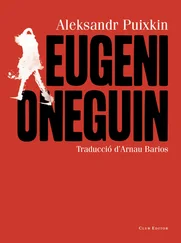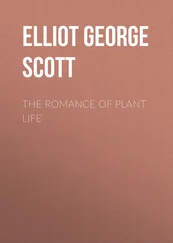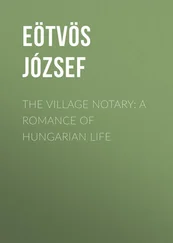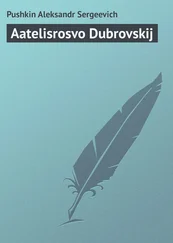Aleksandr Pushkin - Eugene Oneguine [Onegin]. A Romance of Russian Life in Verse
Здесь есть возможность читать онлайн «Aleksandr Pushkin - Eugene Oneguine [Onegin]. A Romance of Russian Life in Verse» весь текст электронной книги совершенно бесплатно (целиком полную версию без сокращений). В некоторых случаях можно слушать аудио, скачать через торрент в формате fb2 и присутствует краткое содержание. Год выпуска: 2007, Жанр: Поэзия, на английском языке. Описание произведения, (предисловие) а так же отзывы посетителей доступны на портале библиотеки ЛибКат.
- Название:Eugene Oneguine [Onegin]. A Romance of Russian Life in Verse
- Автор:
- Жанр:
- Год:2007
- ISBN:нет данных
- Рейтинг книги:4 / 5. Голосов: 1
-
Избранное:Добавить в избранное
- Отзывы:
-
Ваша оценка:
- 80
- 1
- 2
- 3
- 4
- 5
Eugene Oneguine [Onegin]. A Romance of Russian Life in Verse: краткое содержание, описание и аннотация
Предлагаем к чтению аннотацию, описание, краткое содержание или предисловие (зависит от того, что написал сам автор книги «Eugene Oneguine [Onegin]. A Romance of Russian Life in Verse»). Если вы не нашли необходимую информацию о книге — напишите в комментариях, мы постараемся отыскать её.
Eugene Oneguine [Onegin]. A Romance of Russian Life in Verse — читать онлайн бесплатно полную книгу (весь текст) целиком
Ниже представлен текст книги, разбитый по страницам. Система сохранения места последней прочитанной страницы, позволяет с удобством читать онлайн бесплатно книгу «Eugene Oneguine [Onegin]. A Romance of Russian Life in Verse», без необходимости каждый раз заново искать на чём Вы остановились. Поставьте закладку, и сможете в любой момент перейти на страницу, на которой закончили чтение.
Интервал:
Закладка:
XVII
But more the passions occupy
The converse of our hermits twain,
And, heaving a regretful sigh,
An exile from their troublous reign,
Eugene would speak regarding these.
Thrice happy who their agonies
Hath suffered but indifferent grown,
Still happier he who ne'er hath known!
By absence who hath chilled his love,
His hate by slander, and who spends
Existence without wife or friends,
Whom jealous transport cannot move,
And who the rent-roll of his race
Ne'er trusted to the treacherous ace.
XVIII
When, wise at length, we seek repose
Beneath the flag of Quietude,
When Passion's fire no longer glows
And when her violence reviewed—
Each gust of temper, silly word,
Seems so unnatural and absurd:
Reduced with effort unto sense,
We hear with interest intense
The accents wild of other's woes,
They stir the heart as heretofore.
So ancient warriors, battles o'er,
A curious interest disclose
In yarns of youthful troopers gay,
Lost in the hamlet far away.
XIX
And in addition youth is flame
And cannot anything conceal,
Is ever ready to proclaim
The love, hate, sorrow, joy, we feel.
Deeming himself a veteran scarred
In love's campaigns Oneguine heard
With quite a lachrymose expression
The youthful poet's fond confession.
He with an innocence extreme
His inner consciousness laid bare,
And Eugene soon discovered there
The story of his young love's dream,
Where plentifully feelings flow
Which we experienced long ago.
XX
Alas! he loved as in our times
Men love no more, as only the
Mad spirit of the man who rhymes
Is still condemned in love to be;
One image occupied his mind,
Constant affection intertwined
And an habitual sense of pain;
And distance interposed in vain,
Nor years of separation all
Nor homage which the Muse demands
Nor beauties of far distant lands
Nor study, banquet, rout nor ball
His constant soul could ever tire,
Which glowed with virginal desire.
XXI
When but a boy he Olga loved
Unknown as yet the aching heart,
He witnessed tenderly and moved
Her girlish gaiety and sport.
Beneath the sheltering oak tree's shade
He with his little maiden played,
Whilst the fond parents, friends thro' life,
Dreamed in the future man and wife.
And full of innocent delight,
As in a thicket's humble shade,
Beneath her parents' eyes the maid
Grew like a lily pure and white,
Unseen in thick and tangled grass
By bee and butterfly which pass.
XXII
'Twas she who first within his breast
Poetic transport did infuse,
And thoughts of Olga first impressed
A mournful temper on his Muse.
Farewell! thou golden days of love!
'Twas then he loved the tangled grove
And solitude and calm delight,
The moon, the stars, and shining night—
The moon, the lamp of heaven above,
To whom we used to consecrate
A promenade in twilight late
With tears which secret sufferers love—
But now in her effulgence pale
A substitute for lamps we hail!
XXIII
Obedient she had ever been
And modest, cheerful as the morn,
As a poetic life serene,
Sweet as the kiss of lovers sworn.
Her eyes were of cerulean blue,
Her locks were of a golden hue,
Her movements, voice and figure slight,
All about Olga—to a light
Romance of love I pray refer,
You'll find her portrait there, I vouch;
I formerly admired her much
But finally grew bored by her.
But with her elder sister I
Must now my stanzas occupy.
XXIV
Tattiana was her appellation.
We are the first who such a name
In pages of a love narration
With such a perversity proclaim.
But wherefore not?—'Tis pleasant, nice,
Euphonious, though I know a spice
It carries of antiquity
And of the attic. Honestly,
We must admit but little taste
Doth in us or our names appear [27] "The most euphonious Greek names, e.g. Agathon, Philotas, Theodora, Thekla, etc., are used amongst us by the lower classes only."
(I speak not of our poems here),
And education runs to waste,
Endowing us from out her store
With affectation,—nothing more.
XXV
And so Tattiana was her name,
Nor by her sister's brilliancy
Nor by her beauty she became
The cynosure of every eye.
Shy, silent did the maid appear
As in the timid forest deer,
Even beneath her parents' roof
Stood as estranged from all aloof,
Nearest and dearest knew not how
To fawn upon and love express;
A child devoid of childishness
To romp and play she ne'er would go:
Oft staring through the window pane
Would she in silence long remain.
XXVI
Contemplativeness, her delight,
E'en from her cradle's earliest dream,
Adorned with many a vision bright
Of rural life the sluggish stream;
Ne'er touched her fingers indolent
The needle nor, o'er framework bent,
Would she the canvas tight enrich
With gay design and silken stitch.
Desire to rule ye may observe
When the obedient doll in sport
An infant maiden doth exhort
Polite demeanour to preserve,
Gravely repeating to another
Recent instructions of its mother.
XXVII
But Tania ne'er displayed a passion
For dolls, e'en from her earliest years,
And gossip of the town and fashion
She ne'er repeated unto hers.
Strange unto her each childish game,
But when the winter season came
And dark and drear the evenings were,
Terrible tales she loved to hear.
And when for Olga nurse arrayed
In the broad meadow a gay rout,
All the young people round about,
At prisoner's base she never played.
Their noisy laugh her soul annoyed,
Their giddy sports she ne'er enjoyed.
XXVIII
She loved upon the balcony
To anticipate the break of day,
When on the pallid eastern sky
The starry beacons fade away,
The horizon luminous doth grow,
Morning's forerunners, breezes blow
And gradually day unfolds.
In winter, when Night longer holds
A hemisphere beneath her sway,
Longer the East inert reclines
Beneath the moon which dimly shines,
And calmly sleeps the hours away,
At the same hour she oped her eyes
And would by candlelight arise.
XXIX
Romances pleased her from the first,
Her all in all did constitute;
In love adventures she was versed,
Rousseau and Richardson to boot.
Интервал:
Закладка:
Похожие книги на «Eugene Oneguine [Onegin]. A Romance of Russian Life in Verse»
Представляем Вашему вниманию похожие книги на «Eugene Oneguine [Onegin]. A Romance of Russian Life in Verse» списком для выбора. Мы отобрали схожую по названию и смыслу литературу в надежде предоставить читателям больше вариантов отыскать новые, интересные, ещё непрочитанные произведения.
Обсуждение, отзывы о книге «Eugene Oneguine [Onegin]. A Romance of Russian Life in Verse» и просто собственные мнения читателей. Оставьте ваши комментарии, напишите, что Вы думаете о произведении, его смысле или главных героях. Укажите что конкретно понравилось, а что нет, и почему Вы так считаете.











